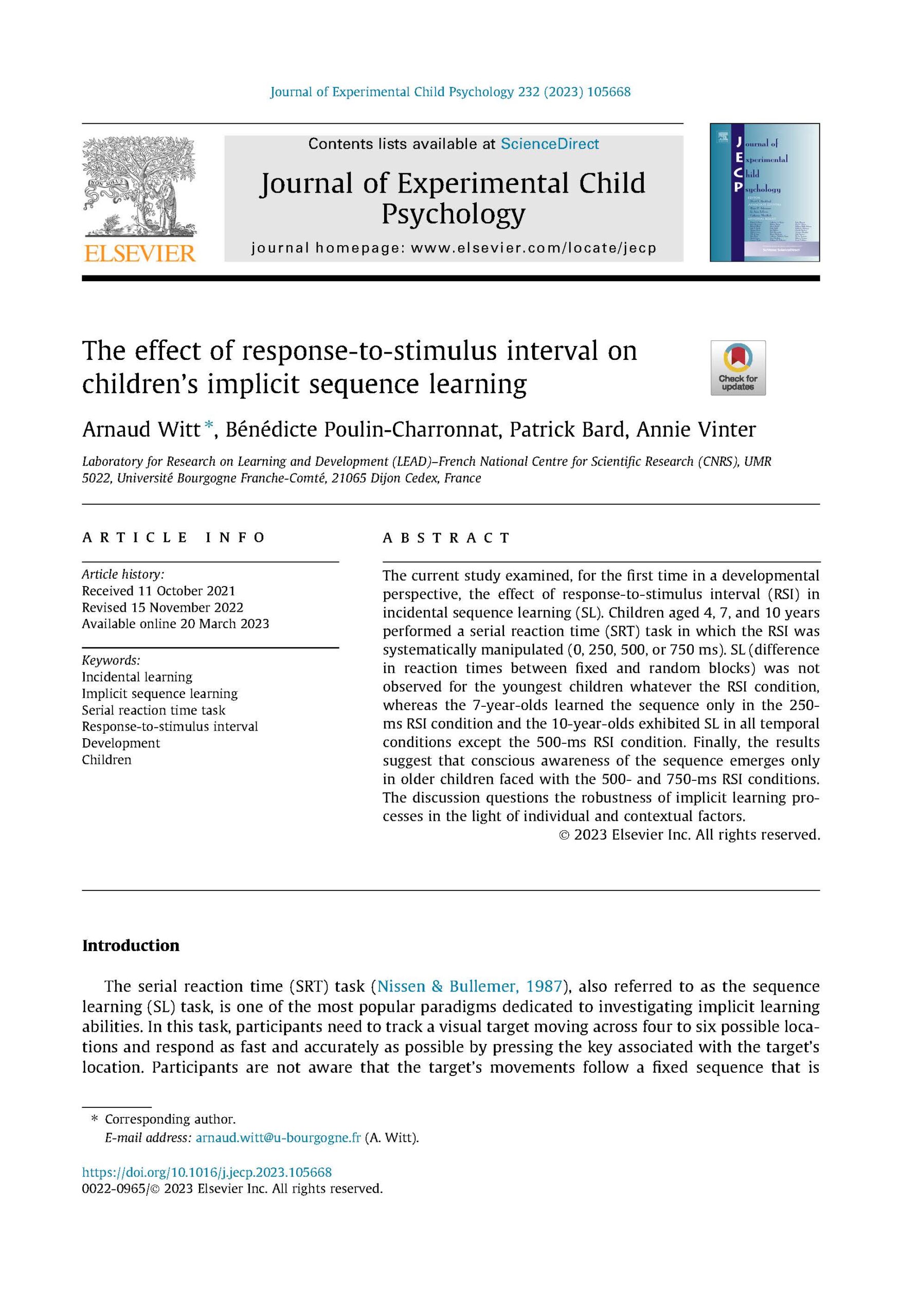The current study examined, for the first time in a developmental perspective, the effect of response-to-stimulus interval (RSI) in incidental sequence learning (SL). Children aged 4, 7, and 10 years performed a serial reaction time (SRT) task in which the RSI was systematically manipulated (0, 250, 500, or 750 ms). SL (difference in reaction times between fixed and random blocks) was not observed for the youngest children whatever the RSI condition, whereas the 7-year-olds learned the sequence only in the 250-ms RSI condition and the 10-year-olds exhibited SL in all temporal conditions except the 500-ms RSI condition. Finally, the results suggest that conscious awareness of the sequence emerges only in older children faced with the 500- and 750-ms RSI conditions. The discussion questions the robustness of implicit learning processes in the light of individual and contextual factors.
The effect of response-to-stimulus interval on children’s implicit sequence learning
